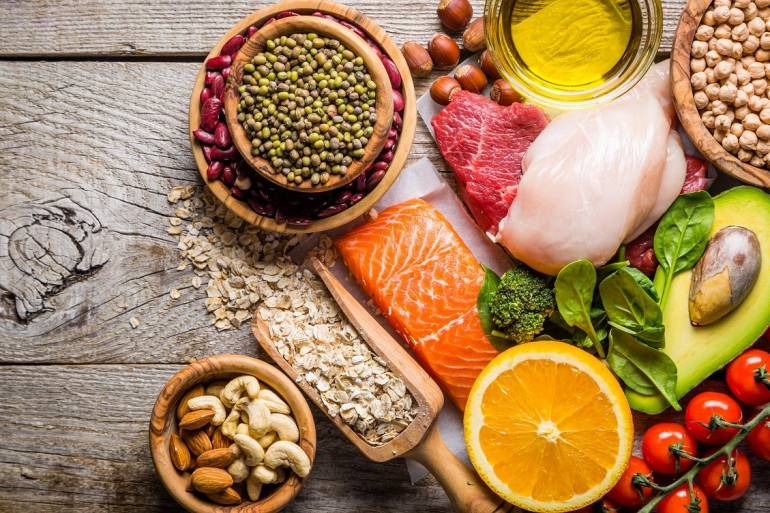Many myths have grown up around the subject of cholesterol. Should it really be completely eliminated from the diet? What is it really like with this “good” and “bad” cholesterol? And how to lower blood cholesterol levels? We debunk the most popular myths about cholesterol.
Fact: Cholesterol is essential for life.
Cholesterol builds every cell in the human body, and is additionally necessary for the production of many hormones (including progesterone, estrogen and testosterone), vitamin D3 and bile acids (which enables food digestion). It also plays an important role in the proper functioning of the nervous and immune systems.
Myth: Cholesterol comes only from animal products.
This is not true – cholesterol in the body comes from two main sources: from food (this is known as exogenous cholesterol) and from internal synthesis in the cells (known as endogenous). The human body’s cholesterol factory is the liver, which produces between 2 and 4 grams of cholesterol per day, depending on demand.
Myth: Products with high cholesterol content, such as eggs, should be avoided.
Keep in mind that cholesterol from food is only 20% absorbed. A hen’s egg contains about 200 mg of cholesterol, of which only about 40 mg will be assimilated into the body, which is only a few percent of the daily requirement for this substance. Of course, in everything one should exercise moderation and eat according to the needs adapted to one’s age, gender and lifestyle. However, for a healthy person, products rich in cholesterol, eaten in reasonable amounts, do not pose a threat.
Myth: One must strive to completely eliminate “bad” cholesterol from the body.
The term “cholesterol” is used collectively to describe the various fractions of lipoproteins (molecules composed of proteins and fats) circulating in the body, which contain cholesterol in their composition. When testing blood cholesterol levels, the two most important fractions are taken into account: HDL and LDL. High-density lipoproteins (or HDL) are referred to as this “good” cholesterol, while low-density lipoproteins (or LDL) are the commonly known “bad” cholesterol.
Calling specific fractions as “good” or “bad” is somewhat misleading, as both groups of compounds are essential for the body to function properly. It is important to maintain the right proportions of both these fractions with the predominance of “good” HDL cholesterol over “bad” LDL cholesterol.
Myth: High total cholesterol is an important health warning signal.
It has long been a myth that high blood cholesterol levels are directly related to a high risk of cardiovascular disease, including atherosclerosis and heart attack. Meanwhile, what is crucial is not the total blood cholesterol level, but the ratio of its individual fractions, namely HDL lipoproteins, LDL and triglycerides. The total blood cholesterol alone tells us little about the state of health if we do not know the level of the values of the individual fractions. It happens that people with cholesterol above normal often have no cardiovascular problems and enjoy good health. This is because they have a predominance of the HDL fraction, or “good” cholesterol.
However, if the results of laboratory tests indicate elevated cholesterol levels along with an unfavorable ratio of the mentioned fractions, then this should be taken as a warning signal. This may indicate the presence of inflammation in the body, which can indicate the development of one of many chronic diseases.
Fact: Diet is the best way to regulate cholesterol levels in the body.
A diet to lower cholesterol involves changing certain eating habits and introducing specific foods permanently into the daily menu.
What products will help lower cholesterol?
- Products rich in soluble dietary fiber, for example: bran, oatmeal, whole grain bread, brown rice, vegetables and fruits eaten with the skin. As little as approx. 10 g of soluble fiber per day can reduce the absorption of cholesterol into the blood (such an amount can be found, for example, in half a cup of oatmeal).
- Unsaturated fatty acids. Omega-3 fatty acids, a rich source of which are fatty marine fish (mackerel, sardines, salmon, tuna, halibut). They are best prepared by baking, grilling or boiling – avoid frying so as not to add unnecessary fat. An alternative is to take supplements rich in unsaturated omega-3 fatty acids, such as cod liver oil. Olive oil (extra virgine is best) is also a good fat, added raw to salads or to spread on bread.
- Nuts and almonds, also rich in unsaturated fatty acids. They are a good alternative to unhealthy snacks.
What to eliminate from the diet to lower cholesterol?
First of all, avoid products that could raise cholesterol, including fatty beef and pork. It is worth replacing it with lean meat (such as skinless poultry meat). Instead of fatty yellow cheese, go for lean white cottage cheese. It is also worth removing highly processed foods, such as fast-food, from the diet.
Fact: Herbal preparations help regulate cholesterol levels in the body.
To lower cholesterol, you can turn to over-the-counter herbal preparations based on extracts of artichoke herb or extracts of thistle husks (such as in the form of thistle capsules).
Preparations combining artichoke and thistle extracts (such as Sylicynar or Sylimarol Cholesterol) not only have a beneficial effect on cholesterol levels in the body, but also support liver and bile duct function.







